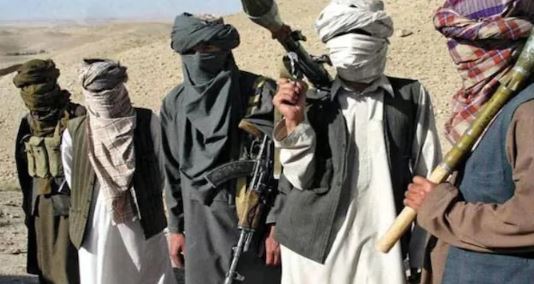Islamabad: Pakistan Thursday said that it was not interested in a dialogue with the banned Tehreek-e-Taliban Pakistan (TTP) after a leading cleric visited Kabul and talked of dialogue following his meeting with the Afghan Taliban leadership.
Foreign Office spokesperson Mumtaz Zahra Baloch in her weekly press briefing said that Pakistan’s stance was clear because the TTP had accepted responsibility for numerous terrorist attacks in the country.
The spokesperson said there is no change in Pakistan’s policy towards the TTP. “We have no dialogue taking place with the TTP nor do we have the intent to hold talks with it which is responsible for several terror incidents in Pakistan,” she said.
She once again demanded the Afghan authorities take effective action against terrorist elements including the TTP leadership. She said the Afghan authorities should ensure the elimination of terrorist hideouts and hand over to Islamabad those responsible for terror incidents in Pakistan.
“Our demand from the Afghan government is that they take action against the terrorists,” she said.
The issue of talks cropped at the presser in the wake a visit to Afghanistan by the Jamiat-e-Ulema Islam-Fazl (JUI-F) chief Maulana Fazlur Rehman, who reportedly also met Afghan Taliban’s recluse supreme chief Mullah Haibatullah Akuhnd.
After meetings, Rehman said that he would try to revive talks between the government and the TTP.
Baloch said Rehman’s visit to Afghanistan was neither on behalf of the Government of Pakistan nor the Foreign Office. “The Foreign Office had given a briefing to Maulana Fazlur Rehman before his visit. He has gone on his own volition,” she said.
The spokesperson also reiterated that the maulana had not gone to Kabul as a representative of Pakistan.
Speaking about terrorism, Baloch said that Pakistan, along with Afghanistan and Iran, will continue to work together in its efforts against terrorism. “Pakistan strongly condemns the terrorist attack in Kerman, Iran,” she said.
Pakistan had held several rounds of talks – brokered by the Afghan Taliban – with the TTP in the past but the negotiations failed in 2022 after which the militant group resumed terror activities.
The TTP has become a thorny issue between Pakistan and the Afghan Taliban. Pakistan expected the Afghan Taliban to address its concerns regarding the TTP after its return to power in August 2021. But contrary to the expectations, the TTP attacks only went up.
The TTP, which has ideological linkages with the Afghan Taliban and is also known as the Pakistan Taliban, was set up as an umbrella group of several militant outfits in 2007. Its main aim is to impose its strict brand of Islam across Pakistan.
The Afghan Taliban’s reluctance to take on the TTP stemmed from its fears that the group’s fighters might join Da’esh (Islamic State). Second, the Afghan Taliban and the TTP share the same ideology as they fought alongside the US-led foreign forces.
The group has been blamed for several deadly attacks across Pakistan, including an attack on army headquarters in 2009, assaults on military bases and the 2008 bombing of the Marriott Hotel in Islamabad.
Talking about the South Africa’s case against Israel subjecting Palestinians to genocide in the International Court of Justice (ICJ), the spokesperson said that Pakistan appreciated South Africa’s move.
She also said that Pakistan demands an immediate ceasefire in Gaza, and an end to the massacre of Palestinians. “We believe in the two-state solution – a solution in which Palestine has pre-1967 borders with Al-Quds as its capital,” Baloch added.
PTI
